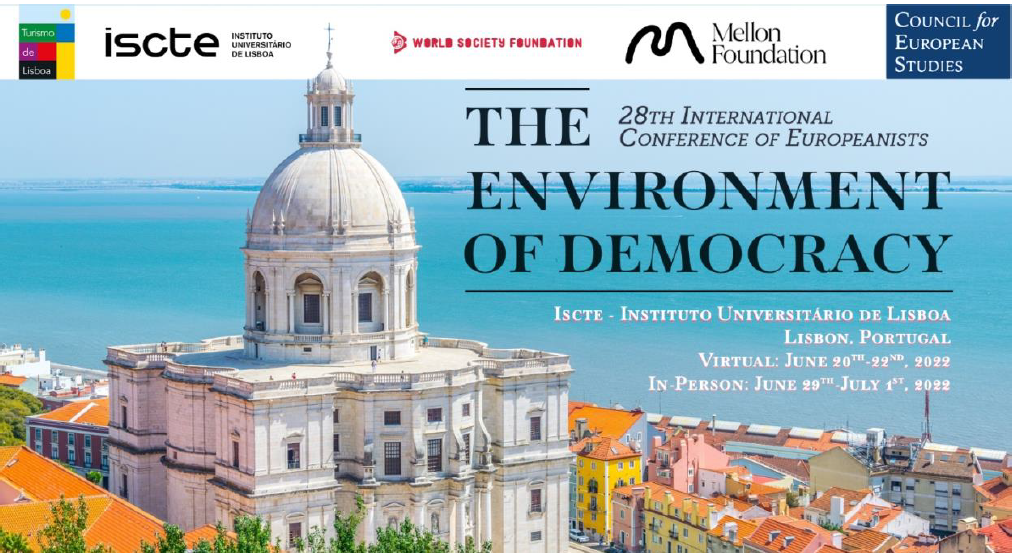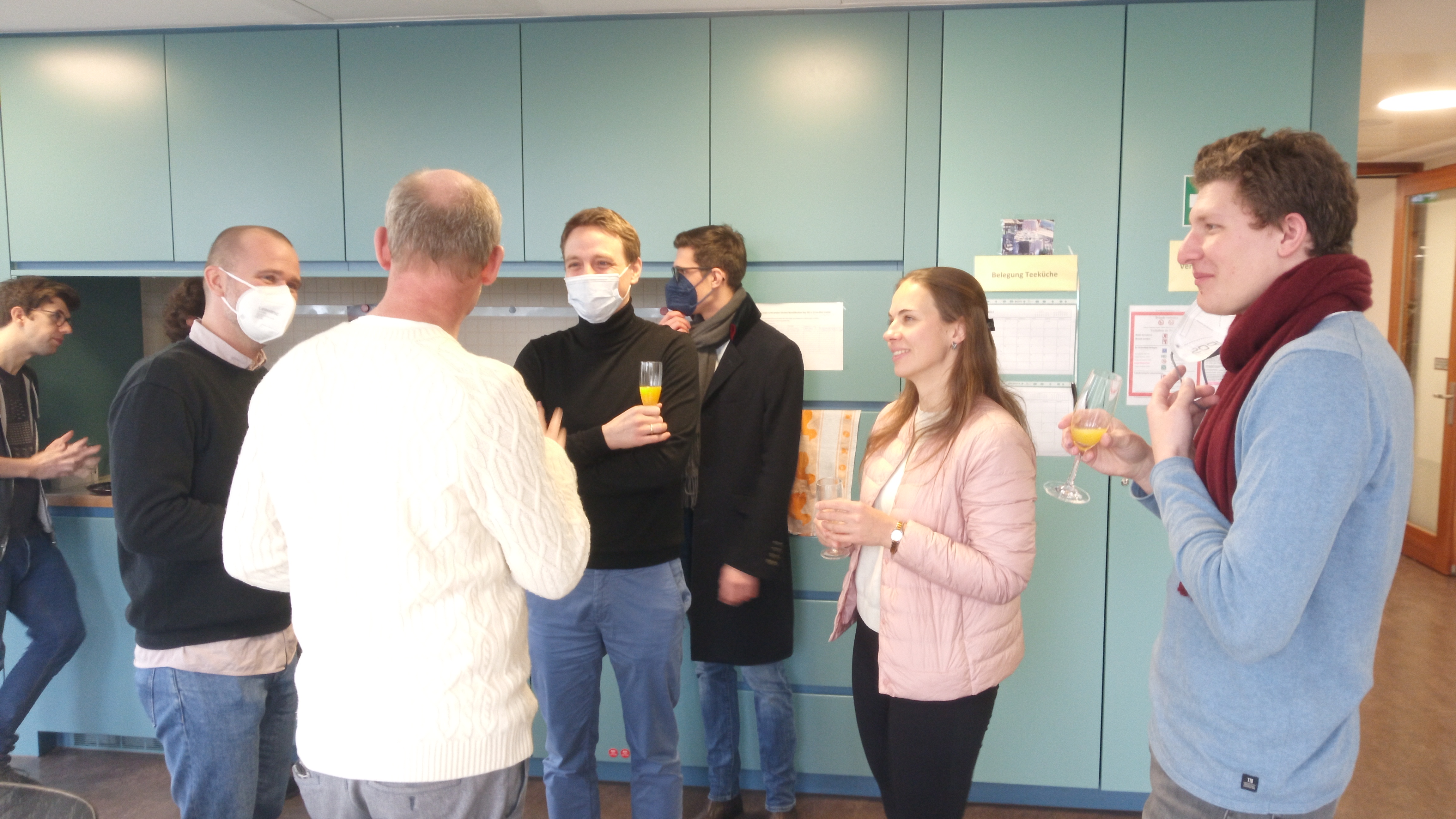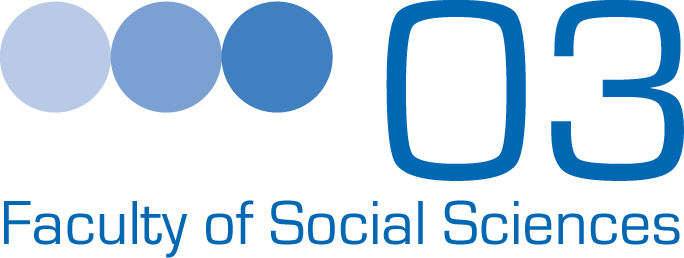
Benedikt Bender
is participating in the international conference of the Council for European
Studies in Lisbon. From June 29 to July 1, he will discuss democracy, economy
and society with leading international scholars. His presentation will be in
the panel "Public Policy Positions of European Business Associations:
Where Do Employer Preferences Come from?" where he will present his
current research from the Reform Monitor on Political Conflict. More
information on the Reform Monitor on Political Conflict will follow soon on our
homepage.
In the XII. edition of the event series Frankfurter Gespräche, Dr. Benedikt Bender, research associate at our professorship, organized a talk with "MrWissen2Go", Mirko Drotschmann, on March 23, 2022. The event was conducted in presence as well as broadcast via live stream and was titled: "Knowledge, Truth and the Creation of our Reality in the Age of the 'Digital Revolution'". The lecture of "Mr.Wissen2Go" was on the one hand about the use of social media for knowledge transfer (viewing behavior, learning and attention curve) and on the other hand about the challenges consumers and producers are confronted with. In the subsequent conversation and discussion with the audience, it was then "truth claims" and the "struggle" for knowledge and truth that came up and were controversially discussed. Overall, the event was a great opportunity to establish a connection between an expert in knowledge communication and our methods team.
 |
The winter semester 2021/22 continued to be strongly influenced by the Covid pandemic and demanded a high degree of flexibility and mutual consideration from all lecturers and students. For the first time since the winter semester 2019/20, however, it was again possible to conduct teaching in attendance while observing the appropriate safety precautions. With a successful hybrid concept that provided for four courses in presence, three digitally, and another in alternating mode, our chair successfully contributed to getting face-to-face encounters and exchanges between lecturers and students going again in the seminar room, while at the same time taking into account the sensitivities and needs of all involved.
Despite the adverse circumstances, our students look back on their return to campus with satisfaction. For example, our student assistant Laura Linz, who is happy to be able to complete the last stages of her master's studies in presence: "I really enjoyed being able to study and work in presence at the university again. Although some courses were moved back to online mode during the semester and the hallways became emptier again, I still come here several times a week because I don't want to miss the personal exchange in the team and with my fellow students."
Lex Metzeld, student assistant at the chair, who was able to enjoy studying at the Westend Campus for the first time in his third Bachelor semester, also draws an extremely satisfied conclusion: "The past semester has exceeded my expectations in a positive sense. I had a lot of fun during the weeks of face-to-face teaching until Christmas. The interesting and pleasant discussions and the fact that I already knew the course participants also qualitatively enhanced the last few weeks of online teaching. All the more I can say for myself after this semester: There is no real substitute for direct interaction, which is why I am very much looking forward to the summer semester as a (hopefully) purely face-to-face semester. And apart from that, there is still the weekly exchange with my colleagues at the professorship, which is always a highlight of my week."
While our entire chair is happy about the successful resumption of campus life, we ask for your understanding should we not be as present and reliably reachable as usual during the semester break. This is especially true for Professor Claudius Wagemann, for whom the end of the lecture period means the beginning of a research semester.

As envisioned in the project, the Work Package 5 (WP5), coordinated by Claudius Wagemann at the Goethe University Frankfurt, starts in the second year of ProDem. It deals with the institutional arena, exploring whether movement parties politically represent the concerns of the mass protests' participants.
Taking a policy analysis perspective, WP5 will investigate the transition of social movements' political demands into the political system and provide a triple comparison between the agendas of social movements, movement parties, and governments. The next few months the WP5 team in Frankfurt will be analyzing the policy issues which are most important to the selected social movements in the six European countries studied by ProDem and the political agendas of the movement parties connected to these social movements, assessing the degree to which the latter reflect the political demands of the social movements. We will arrive at the political profiles of several most prominent policy issues for each social movement and movement party. In drawing up these profiles we will rely on the results and data from other ProDem Work Packages and complement that with the document analysis of relevant sources in each country case.
This step will then bring us closer to the next goal of evaluating the degree to which movement parties and parliamentary and government actors adopt social movements' policy demands for the set of identified central policy issues, later to be examined through Qualitative Comparative Analysis.
 |
Dear Daria, we are more than happy to have you here and wish you a good start and a wonderful time with us in Frankfurt!
- Studying at Goethe University
- International applicants
- Faculties
- Overview of study programmes
- Programme for refugees
- GRADE
- Goethe Business School (continuing education)
- Research at Goethe University
- Scientific news
- Goethe Welcome Center (for international researchers)
- Collaborative research projects
- Individual research
- Visiting fellowships
- Endowed chairs
- About the University
- News-in-brief
- University administration
- Campus locations
- Campus life
- University archives (German)
- Rhine-Main-Universities






